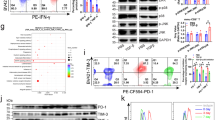Abstract
Recent research suggests that a small group of cells, named cancer stem cells (CSCs), is responsible for initiating tumor formation, recurrence, and metastasis. c-Yes, a proto-oncogene that is a subfamily of Src family kinase, is often activated in human colon cancer; this implicates c-Yes in the onset and progression of the disease. The objective of this study was to investigate the correlation between c-Yes and CSCs. We performed a sphere formation assay and reverse transcription-polymerase chain reaction for studying the differentiation of HT-29 human colon CSCs. To demonstrate the specific role of c-Yes in CSCs, we performed live cell microscopy and a cell cycle assay. These study shows, for the first time, that c-Yes is enriched in CD133+ CSCs, compared to their CD133− counterparts, and that c-Yes depletion in CD133+ cells induces cell differentiation. Moreover, c-Yes depletion was found to elongate the midbody and increase the proliferation doubling time. This also suggested that the misregulation of microtubules during chromosomal separation causes aneuploidy. Our results suggest that c-Yes may play a crucial role in initiating, maintaining, and driving the tumorigenic property of colon cancer.
Similar content being viewed by others
References
Pohl A, Lurje G, Kahn M, Lenz HJ. Stem cells in colon cancer. Clin Colorectal Cancer 2008;7:92–98.
LaBarge MA, Bissell MJ. Is CD133 a marker of metastatic colon cancer stem cells? J Clin Invest 2008;118:2021–2024.
Fabrizi E, di Martino S, Pelacchi F, Ricci-Vitiani L. Therapeutic implications of colon cancer stem cells. World J Gastroenterol 2010;16:3871–3877.
Puglisi M, Saulnier N, Sgambato A, Barba M, Novi M, Boninsegna A, et al. Identification of CD133-cancer stem cells in hepatic metastasis from colon cancer. Gastroenterology 2008;134:A447–A448.
Varnat F, Gervaz P, Morel P, Altaba ARI. CD133+cancer stem cells are more prevalent in metastatic than non-metastatic colon carcinomas. Swiss Med Wkly 2009;139:6.
Boivin D, Labbé D, Fontaine N, Lamy S, Beaulieu E, Gingras D, et al. The stem cell marker CD133 (prominin-1) is phosphorylated on cytoplasmic tyrosine-828 and tyrosine-852 by Src and Fyn tyrosine kinases. Biochemistry 2009;48:3998–4007.
Sancier F, Dumont A, Sirvent A, Paquay de Plater L, Edmonds T, David G, et al. Specific oncogenic activity of the Src-family tyrosine kinase c-Yes in colon carcinoma cells. PLoS One 2011;6:e17237.
Ghaffari S. Cancer, stem cells and cancer stem cells: old ideas, new developments. F1000 Med Rep 2011;3:2.
de Sousa EM, Vermeulen L, Richel D, Medema JP. Targeting Wnt signaling in colon cancer stem cells. Clin Cancer Res 2011;17:647–653.
O’Brien CA, Kreso A, Jamieson CH. Cancer stem cells and self-renewal. Clin Cancer Res 2010;16:3113–3120.
Ricci-Vitiani L, Fabrizi E, Palio E, De Maria R. Colon cancer stem cells. J Mol Med (Berl) 2009;87:1097–1104.
Chu P, Clanton DJ, Snipas TS, Lee J, Mitchell E, Nguyen ML, et al. Characterization of a subpopulation of colon cancer cells with stem cell-like properties. Int J Cancer 2009;124:1312–1321.
Feng H, Masaki T, Nonomura T, Morishita A, Jian G, Nakai S, et al. Activation of c-Yes in hepatocellular carcinoma: a preliminary study. World J Gastroenterol 2006;12:5743–5745.
Jung J, Lee MK, Jin Y, Fu SB, Rosales JL, Lee KY. Clues for c-Yes involvement in the cell cycle and cytokinesis. Cell Cycle 2011;10:1502–1503.
Orr BA, Bai H, Odia Y, Jain D, Anders RA, Eberhart CG. Yes-associated protein 1 is widely expressed in human brain tumors and promotes glioblastoma growth. J Neuropathol Exp Neurol 2011;70:568–577.
Meyn MA 3rd, Schreiner SJ, Dumitrescu TP, Nau GJ, Smithgall TE. SRC family kinase activity is required for murine embryonic stem cell growth and differentiation. Mol Pharmacol 2005;68:1320–1330.
Annerén C, Cowan CA, Melton DA. The Src family of tyrosine kinases is important for embryonic stem cell self-renewal. J Biol Chem 2004; 279:31590–31598.
Blake RA, Broome MA, Liu X, Wu J, Gishizky M, Sun L, et al. SU6656, a selective src family kinase inhibitor, used to probe growth factor signaling. Mol Cell Biol 2000;20:9018–9027.
Weinstein DC, Hemmati-Brivanlou AA. Src family kinase function during early Xenopus development. Dev Dyn 2001;220:163–168.
Weinstein DC, Marden J, Carnevali F, Hemmati-Brivanlou A. FGF-mediated mesoderm induction involves the Src-family kinase Laloo. Nature 1998;394:904–908.
Kasahara K, Nakayama Y, Nakazato Y, Ikeda K, Kuga T, Yamaguchi N. Src signaling regulates completion of abscission in cytokinesis through ERK/MAPK activation at the midbody. J Biol Chem 2007;282:5327–5339.
Soeda S, Nakayama Y, Honda T, Aoki A, Tamura N, Abe K, et al. v-Src causes delocalization of Mklp1, Aurora B, and INCENP from the spindle midzone during cytokinesis failure. Exp Cell Res 2013;319:1382–1397.
Ettinger AW, Wilsch-Bräuninger M, Marzesco AM, Bickle M, Lohmann A, Maliga Z, et al. Proliferating versus differentiating stem and cancer cells exhibit distinct midbody-release behaviour. Nat Commun 2011;2:503.
Park J, Meisler AI, Cartwright CA. c-Yes tyrosine kinase activity in human colon carcinoma. Oncogene 1993;8:2627–2635.
Cartwright CA, Coad CA, Egbert BM. Elevated c-Src tyrosine kinase activity in premalignant epithelia of ulcerative colitis. J Clin Invest 1994;93: 509–515.
Ratushny V, Pathak HB, Beeharry N, Tikhmyanova N, Xiao F, Li T, et al. Dual inhibition of SRC and Aurora kinases induces postmitotic attachment defects and cell death. Oncogene 2012;31:1217–1227.
Author information
Authors and Affiliations
Corresponding author
Additional information
These authors equally contributed equally to this work.
Rights and permissions
About this article
Cite this article
Jung, J., Choi, S.C., Lee, HN. et al. Inhibition of c-Yes induces differentiation of HT-29 human colon cancer stem cells through midbody elongation. Tissue Eng Regen Med 13, 261–269 (2016). https://doi.org/10.1007/s13770-016-9053-x
Received:
Revised:
Accepted:
Published:
Issue Date:
DOI: https://doi.org/10.1007/s13770-016-9053-x




